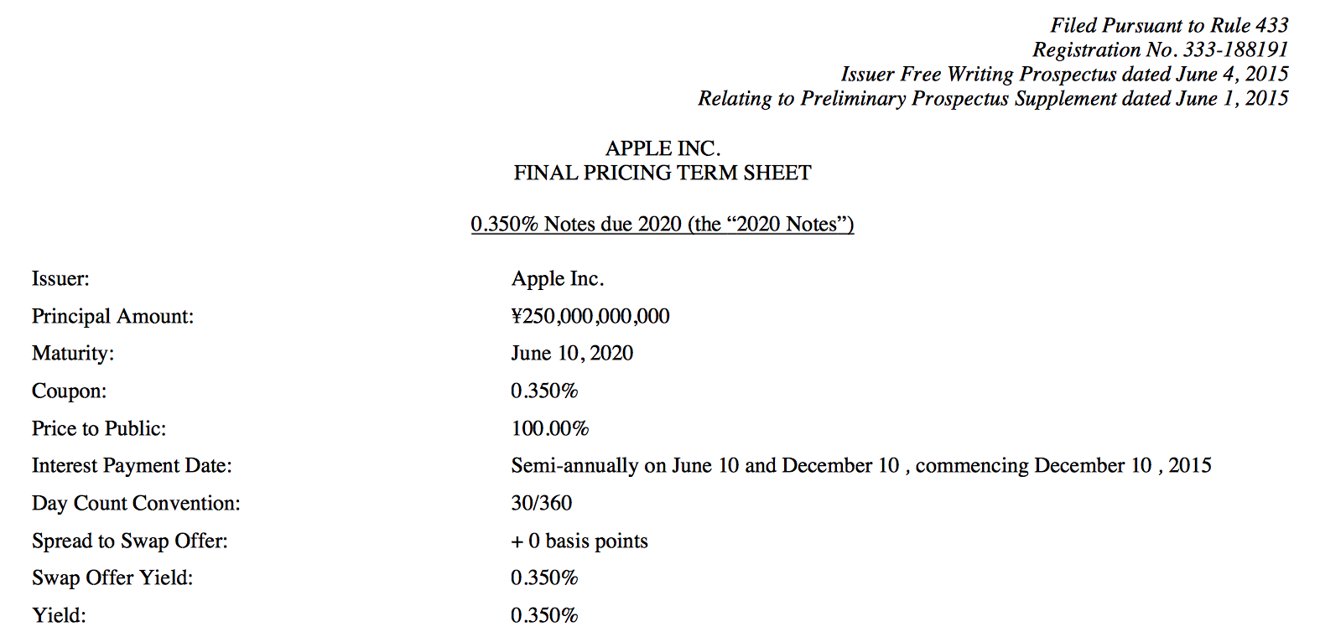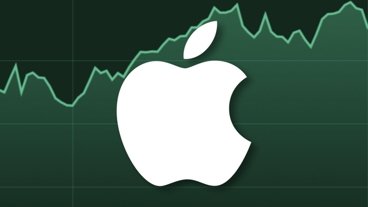In a filing with the U.S. Securities and Exchange Commission on Thursday, Apple revealed that it has raised 250 billion yen through its first-ever Japanese bond offering, which is the equivalent of $2 billion U.S.
The bonds mature on June 10, 2020, and are managed by Goldman Sachs International and Mitsubishi UFJ Securities International. Apple's bonds are rated AA1 by Moody's Investors Service and AA+ by Standard & Poor's Ratings Services.
Bond offerings from Apple are always a hot item for investors, as the company is the most valuable in the world, and as of the end of last quarter it had a massive $194 billion in cash.
Apple's first yen-denominated bond will take advantage of Japan's extremely low interest rates. The company borrows to fund its capital return program for investors, which includes share buybacks and a quarterly dividend.
Apple's current plan calls for it to return $200 billion to shareholders by the end of March 2017.
The $2 billion Japanese bond is one of the largest in the nation's history, but Apple's offering fell short of the $2.2 billion U.S. bond issued by Citigroup in 2007.
Last November, Apple also offered its first-ever euro-denominated bond, also taking advantage of extremely low interest rates. The iPhone maker raised $3.5 billion from that bond offering.
 Neil Hughes
Neil Hughes








 Malcolm Owen
Malcolm Owen

 Amber Neely
Amber Neely
 Christine McKee
Christine McKee


 William Gallagher
William Gallagher
 Chip Loder
Chip Loder
-m.jpg)






23 Comments
Is anyone more familiar with these than I am, and know about what the final return could be on something like this?
Is it on par or dramatically more conservative than stock?
[quote name="Jerry602" url="/t/186571/apples-first-ever-japanese-yen-bond-raises-2-billion-us#post_2730826"]Is anyone more familiar with these than I am, and know about what the final return could be on something like this?[/quote] [quote name="Jerry602" url="/t/186571/apples-first-ever-japanese-yen-bond-raises-2-billion-us#post_2730828"]Is it on par or dramatically more conservative than stock?[/quote] While the interest rate on these bonds will be very low, the TOTAL return could be higher -- or lower -- depending on what happens in the broader bond market. If market interest rates fall, then the bond prices will be higher, the opposite if market interest rates rise. Then, there is the currency factor: has the yen bottomed out against the dollar or not. If the yen appreciates relative to where it is now, a dollar investor in those bonds will be better off. Hate to sound like an economist, but bottom line, it's impossible to predict. Speaking for myself, I'd stay with the stock. The combination of dividends and likely capital gains (although likely to be lower than in the past few years) is probably a better, and oddly enough, a more conservative bet.
Why did Apple issue these bonds? Not thinking they need the money.
Why did Apple issue these bonds? Not thinking they need the money.
Apple makes money by using the bonds to fund the operation. And you know that they need every revenue stream that they can find as the company is too heavily dependent on the iPhone. /s